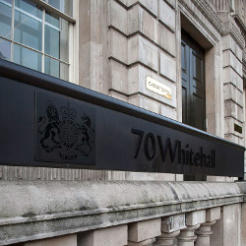The Office for Civil Society will be forced to reduce its number of staff but will have responsibility for distributing £80m of new funding for social impact bonds, according to today's spending review.
The review states that the OCS will “continue to provide a range of support to the UK’s third sector, but it will reduce its headcount and widen the availability of social impact bonds”.
The £80m to be spent by the OCS on social impact bonds (SIBs) will be part of a total £105m from government over this Parliament, which is designed to “uplift funding for locally designed schemes, tackling issues such as youth unemployment”.
Previous government documents have put the projected OCS budget at £56m. Its actual spending last year was £270m but that included £130m on the National Citizen Service.
SIB decision ‘disappointing’
The news of further funding for SIBs has met with a sceptical reaction from some in the sector, including Andrew O’Brien, head of policy and public affairs at the Charity Finance Group.
He told Civil Society News: “It’s frankly not what the sector wanted at all. I don’t think anyone was seriously asking for that; I know the social investment community was, but it’s incredibly niche.
“This isn’t going to help the vast majority of charities. Actually what we need is more focus on the bread and butter of the sector, which is building up financial capability and building up governance.”
Cabinet Office facing further squeeze
The OCS’s parent department the Cabinet Office will see its budget cut by 26 per cent, with the exception of the National Citizen Service (NCS), the government's youth volunteering scheme.
The overall budget will stand at £400m in 2015/16, before rising to £600m the following year and remaining at that level until 2019/20. However by the end of the Parliament £400m of that will go on the NCS.
The Cabinet Office will be expected to make annual resource savings of £60m by 2019-20 from efficiencies such as “reducing the costs of finance and HR and rationalising headcount”.









